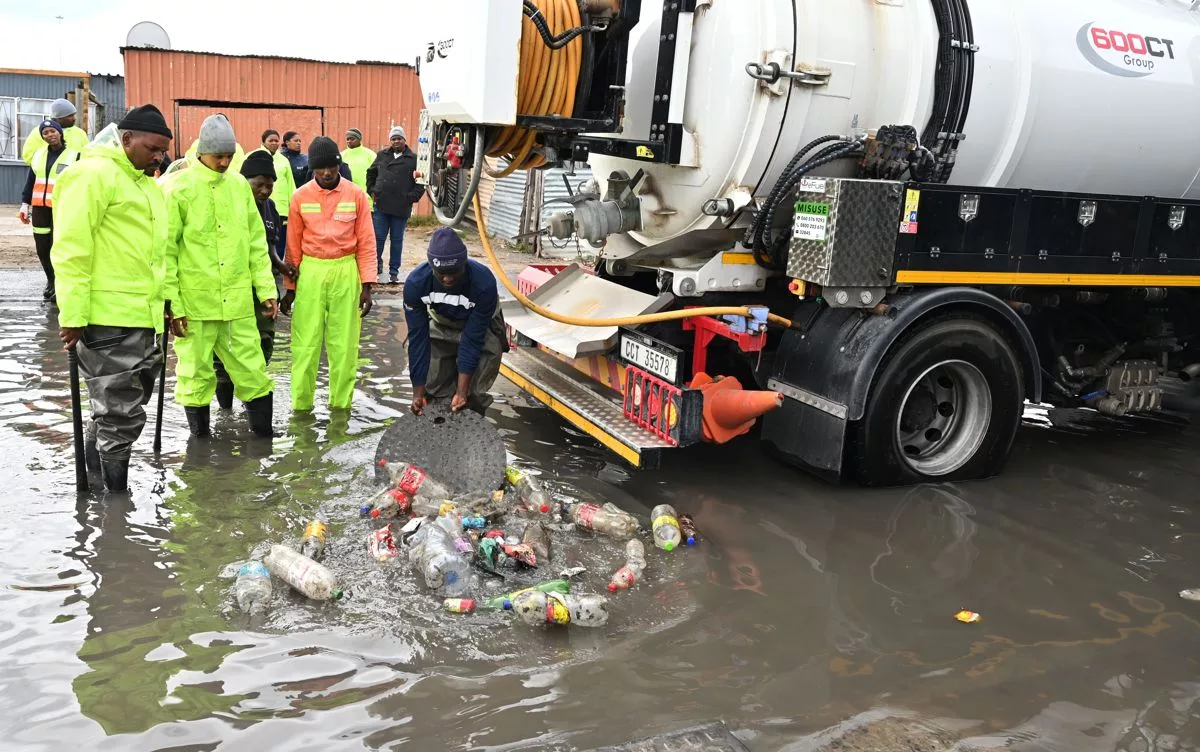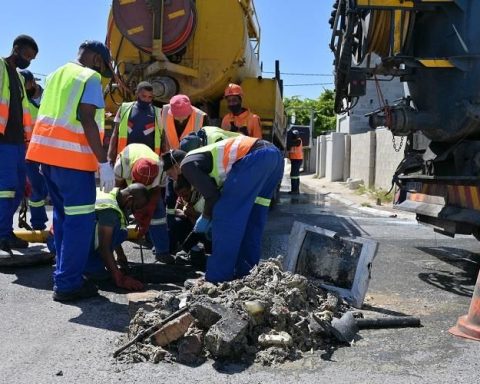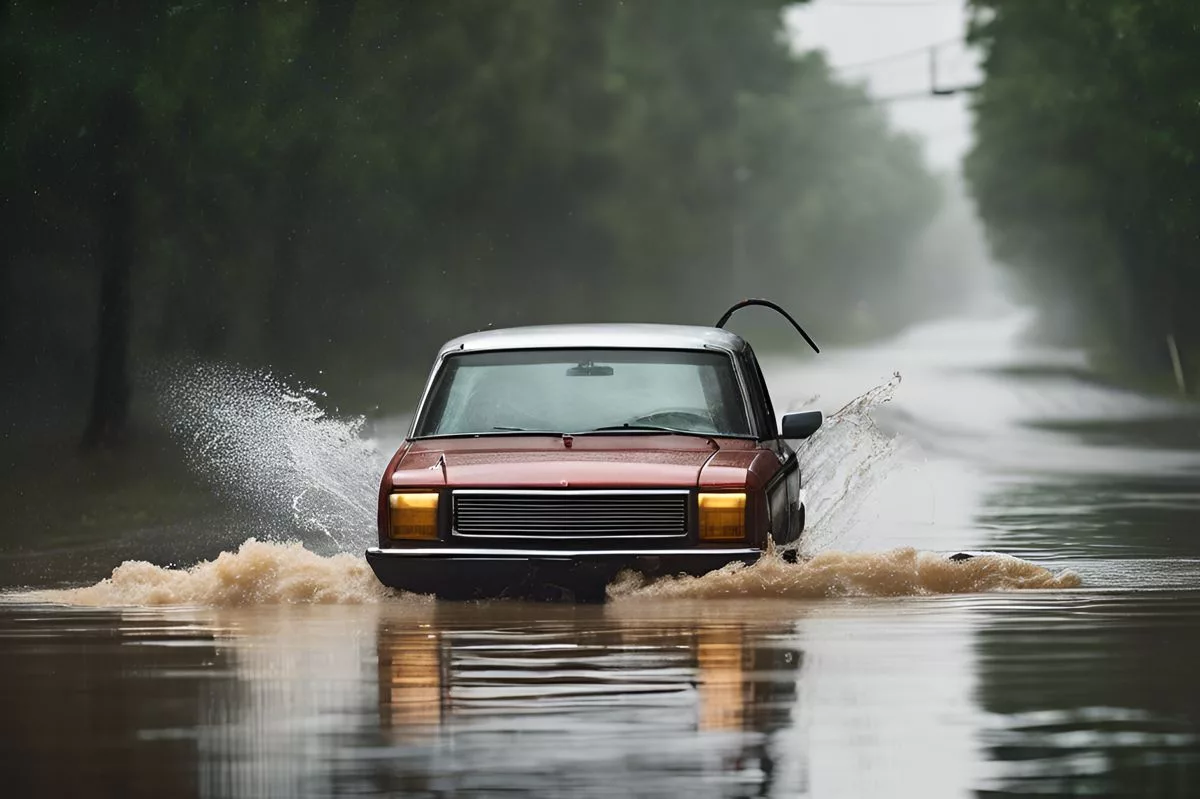In Cape Town, heavy rainfall has caused a surge in dam levels but also led to significant sewer overflows due to excessive stormwater infiltration into pipelines. The city’s Water Pollution Control team is inspecting areas and partnering with external stakeholders to ensure compliance with water by-laws. Residents are encouraged to participate by reporting illegal stormwater-to-sewer connections and refraining from disposing of cooking oils or fats in the kitchen sink. The city is implementing proactive measures to mitigate the problem and create a more sustainable urban water management system.
How is the City of Cape Town addressing unlawful stormwater infiltration into sewer systems?
The city’s Water Pollution Control team carries out inspections and partners with external stakeholders to ensure compliance with relevant water by-laws. Residents are also encouraged to participate by reporting stolen or damaged manhole covers, checking for illegal stormwater-to-sewer connections, and refraining from disposing of cooking oils or fats in the kitchen sink. The city’s proactive approach aims to gradually tackle this problem and create a more sustainable and robust urban water management system.
In response to recent heavy rainfall, city dam levels have remarkably surged to over 99%. This copious downpour has inevitably strained both the sewer and wastewater systems due to excessive stormwater infiltration into the pipelines, resulting in significant sewer overflows. Nonetheless, the city’s proactive squads have been unwavering, implementing strategies to mitigate this problem and encouraging locals to join this vital mission of preventing unlawful stormwater inflows into the sewers.
Section 1: The Impact of Rainfall on Water Management Systems
The initial three weeks of July 2024 have marked a significant turn in the city’s water management system‘s performance. Cape Town’s dam levels have witnessed a striking 20% rise in just a week. Furthermore, information from five rainfall stations within the city indicates that the volume of rain during this time has been two to three times higher than the average recorded over the past 25 to 50 years. This dramatic upturn in rainfall, although advantageous in boosting dam levels, has unintentionally led to a spike in sewer overflows.
Indeed, the Department of Water and Sanitation has reported approximately 11,000 service requests related to sewer overflows across the city—a considerable increase compared to the same period in the previous year. The primary instigators of these blockages are foreign objects such as waste, congealed fats, sand, debris, and other materials. Remarkably, about 18% of these service requests have come from diverse localities, including Strand, Gugulethu, Bonteheuwel, Philippi, Manenberg, Lotus River, Bishop Lavis, Nyanga, Langa, and Wallacedene.
Section 2: Understanding the Sewer and Stormwater Networks
To fully grasp this problem, it’s crucial to understand the contrast between the sewer and stormwater networks. Sewers are specially constructed to transport human waste and grey water from both residential and commercial buildings to the Wastewater Treatment Works (WWTWs). On the other hand, the stormwater network, generally driven by gravity, is designed to channel surface water and rainwater runoff into conduits, canals, rivers, and vleis towards the coast. This system features grated covers to prevent waste from seeping in as much as practically possible.
Nonetheless, stormwater makes its way into the sewer system via various routes. These include exposed or damaged sewer drain manhole covers, unauthorized stormwater-to-sewer connections on properties, sewer manhole covers removed by locals to drain flooded roads, and exposed or absent manhole covers and rodding eye caps on private properties. These practices are not only against the law but also pose public safety hazards, such as potential vehicle mishaps and injuries.
The city’s Water Pollution Control team actively carries out inspections in different areas and partners with external stakeholders to ensure property owners comply with the pertinent water by-laws. Moreover, rainwater seeping through these exposed manholes and illegal stormwater-to-sewer connections contributes to blockages, reduces the pipes’ ability to transport wastewater, and damages infrastructure like pump stations, resulting in overflows and flooding.
The city’s proactive squads are tirelessly operating on the field, responding to urgent calls, and preparing for the potential impacts of the impending heavy rainfall.
Section 3: Proactive Measures and Resident Participation
The city has implemented various proactive strategies to curb sewer blockages and overflows. However, residents also have a crucial role in this effort. Key strategies include checking for illegal stormwater-to-sewer connections, ensuring only human waste and toilet paper go down the toilet, refraining from disposing of cooking oils or fats in the kitchen sink, reporting stolen or damaged manhole covers, and reporting illicit dumping and blocked drains. Additionally, residents are urged to make use of the city’s solid waste services.
The city’s inclusive approach, coupled with the active involvement of its residents, aims to gradually tackle this problem and lay the foundation for a more sustainable and robust urban water management system.
1. How has recent heavy rainfall impacted Cape Town’s water management system?
Recent heavy rainfall has caused a 20% rise in Cape Town’s dam levels in just one week, but it has also led to a significant increase in sewer overflows due to excessive stormwater infiltration into pipelines.
2. What is the difference between the sewer and stormwater networks in Cape Town?
Sewers are designed to transport human waste and grey water from buildings to the Wastewater Treatment Works, while stormwater networks are designed to channel surface and rainwater runoff to the coast. Stormwater can infiltrate the sewer system through exposed or damaged manhole covers, unauthorized stormwater-to-sewer connections, and other illegal practices.
3. How is the city addressing unlawful stormwater infiltration into the sewer system?
The city’s Water Pollution Control team carries out inspections and partners with external stakeholders to ensure compliance with relevant water by-laws. Residents are also encouraged to participate by reporting stolen or damaged manhole covers, checking for illegal stormwater-to-sewer connections, and refraining from disposing of cooking oils or fats in the kitchen sink.
4. What are the primary causes of sewer blockages in Cape Town?
Foreign objects such as waste, congealed fats, sand, debris, and other materials are the primary instigators of sewer blockages in Cape Town.
5. How have residents been encouraged to participate in addressing the problem of unlawful stormwater infiltration?
Residents are urged to report stolen or damaged manhole covers, check for illegal stormwater-to-sewer connections, ensure only human waste and toilet paper go down the toilet, refrain from disposing of cooking oils or fats in the kitchen sink, and report illicit dumping and blocked drains.
6. What is the city’s goal in addressing the problem of unlawful stormwater infiltration?
The city’s goal is to gradually tackle this problem and create a more sustainable and robust urban water management system, with the active involvement of residents.









